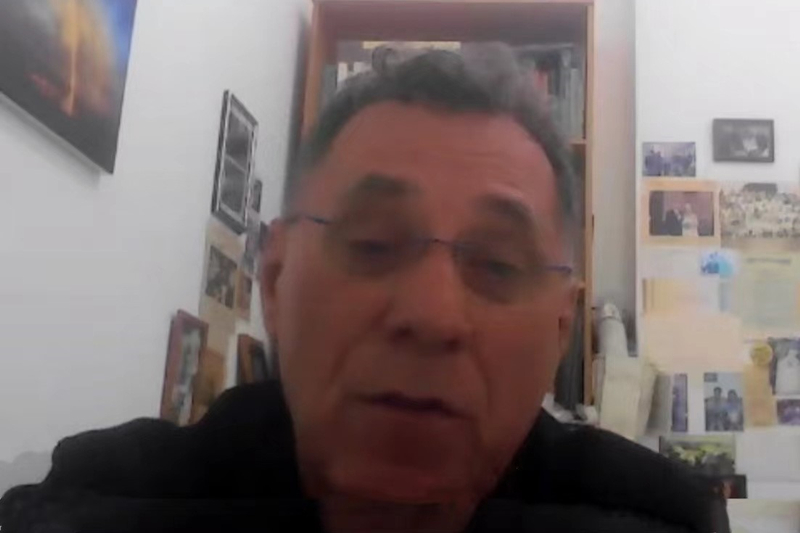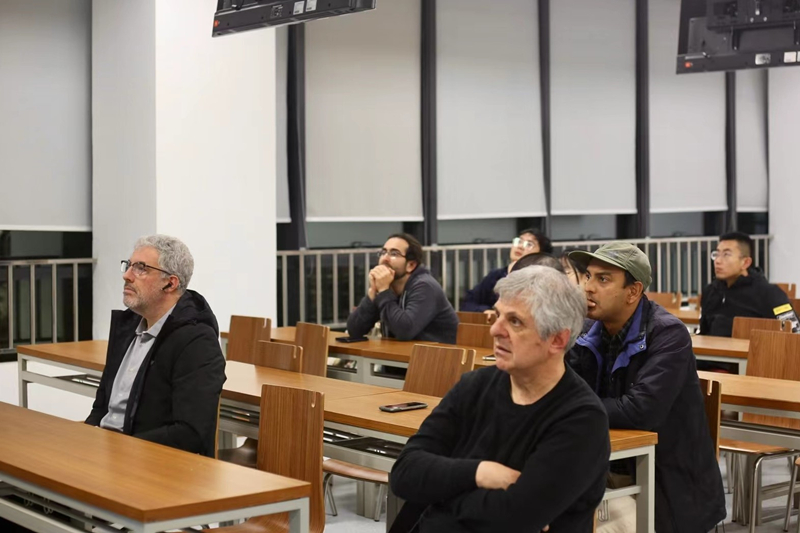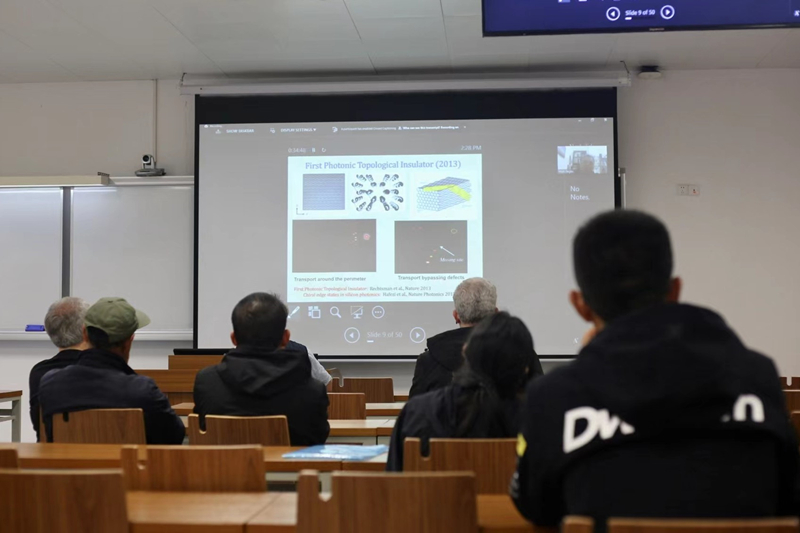PostTime:4/26/2023
This semester, Guangdong Technion - Israel Institute of Technology (GTIIT) continues to bring an academic feast to teachers and students – the "Guangdong-Technion Science and Technology Leaders Series Lectures". This event brings academic frontier information to the university and gives opportunities to interact with leading experts.
Recently, Prof. Mordechai (Moti) Segev, Robert J. Shillman Distinguished Professor of Physics and Electrical Engineering at the Technion - Israel Institute of Technology was invited to give an online lecture entitled "Topological Insulator Lasers" for GTIIT faculty and students.

"The idea of making semiconductor lasers acting as one has been raised for a long time," said Prof. Segev, "Scientists have been working on its breakthroughs since the 1970s, and when they started to notice the coherence of laser diode arrays, it was a big step in this field." However, coherent laser diode arrays have not been able to make new progress till now, mainly because every emitter group is mutually-incoherent with others, which also shows that laser bars cannot be used for any experiments requiring coherence or interference; the light from laser bars cannot be guided in single-mode (or few-modes) fibers.

Prof. Segev introduced his team's research on lasers. "We use the concept of topological insulators as a pathway for forcing many semiconductor laser emitters to operate together as one efficient, coherent and high-power laser on a chip." Talking about their discovery in this field, Prof. Segev took the audience through topological insulators, topological photonics, the concept of topological insulator lasers and the first topological insulator lasers. Speaking of photonic topological insulators, he shared his personal views on the use of experiments for research. "For some physical phenomena whose results are known in advance, why don't we merely use numerical calculations or theoretical analysis to conduct research, but also spend a lot of effort on experiments? That's because physics is an experiment-based science, and we often get new inspiration and ideas in the process of experimentation. The so-called surprise from experiments is to discover the truth beyond the expectation, and to gain the motivation to move forward in the joy."

Prof. Segev further described the challenges his team faced in the current research. "We are working on VCSEL topological arrays, and the main challenges are to use quantum wells instead of quantum dots, to use electric pumping instead of optical pumping, and to bring it all to room temperature." He remained confident of the value of their research. "Studying universal physics with optical tools makes an impact in optics and beyond, and sometimes also leads to new technologies."
In the Q&A session, Prof. Segev gave advice on how to carry out physics research efficiently and whether theoretical analysis or experimentation is more important at the beginning of the study. "You need to be good at both. Usually, our research idea is to conduct theoretical analysis first, and then carry out experiments. However, in some highly specialized and rarely studied fields, there may be no published paper reference. In this case, we will choose to carry out experiments first. There is no standard answer to that question, but I would always suggest you do what you are best at."
Text: Liu Huayi, GTIIT News & Public Affairs
Photos: Xiang Linxuan, GTIIT News & Public Affairs
© GUANGDONG TECHNION-ISRAEL INSTITUTE OF TECHNOLOGY | 粤ICP备17036470号
